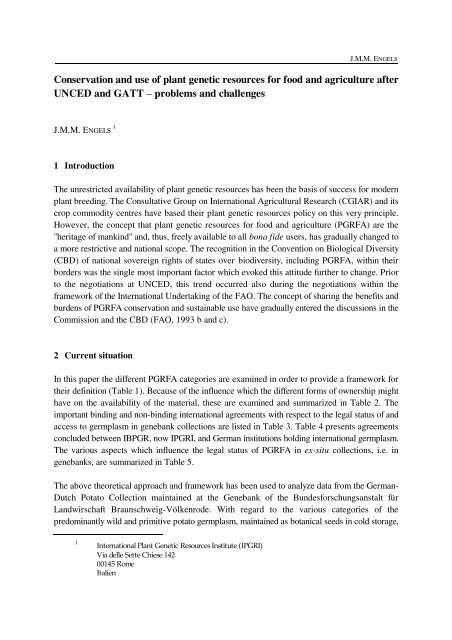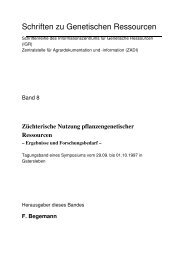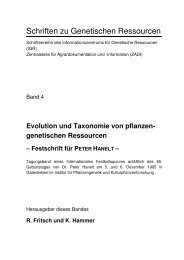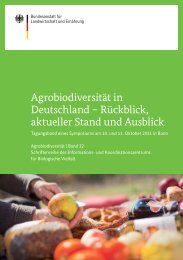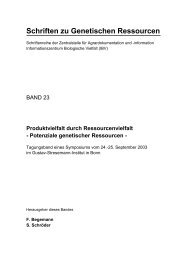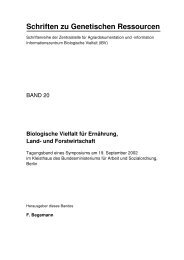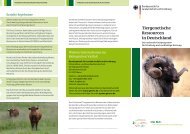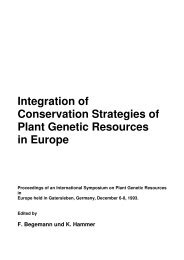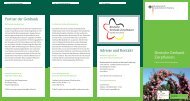Zugang zu Pflanzengenetischen Ressourcen für die ... - Genres
Zugang zu Pflanzengenetischen Ressourcen für die ... - Genres
Zugang zu Pflanzengenetischen Ressourcen für die ... - Genres
Erfolgreiche ePaper selbst erstellen
Machen Sie aus Ihren PDF Publikationen ein blätterbares Flipbook mit unserer einzigartigen Google optimierten e-Paper Software.
J.M.M. ENGELS<br />
Conservation and use of plant genetic resources for food and agriculture after<br />
UNCED and GATT – problems and challenges<br />
J.M.M. ENGELS 1<br />
1 Introduction<br />
The unrestricted availability of plant genetic resources has been the basis of success for modern<br />
plant breeding. The Consultative Group on International Agricultural Research (CGIAR) and its<br />
crop commodity centres have based their plant genetic resources policy on this very principle.<br />
However, the concept that plant genetic resources for food and agriculture (PGRFA) are the<br />
"heritage of mankind" and, thus, freely available to all bona fide users, has gradually changed to<br />
a more restrictive and national scope. The recognition in the Convention on Biological Diversity<br />
(CBD) of national sovereign rights of states over biodiversity, including PGRFA, within their<br />
borders was the single most important factor which evoked this attitude further to change. Prior<br />
to the negotiations at UNCED, this trend occurred also during the negotiations within the<br />
framework of the International Undertaking of the FAO. The concept of sharing the benefits and<br />
burdens of PGRFA conservation and sustainable use have gradually entered the discussions in the<br />
Commission and the CBD (FAO, 1993 b and c).<br />
2 Current situation<br />
In this paper the different PGRFA categories are examined in order to provide a framework for<br />
their definition (Table 1). Because of the influence which the different forms of ownership might<br />
have on the availability of the material, these are examined and summarized in Table 2. The<br />
important binding and non-binding international agreements with respect to the legal status of and<br />
access to germplasm in genebank collections are listed in Table 3. Table 4 presents agreements<br />
concluded between IBPGR, now IPGRI, and German institutions holding international germplasm.<br />
The various aspects which influence the legal status of PGRFA in ex-situ collections, i.e. in<br />
genebanks, are summarized in Table 5.<br />
The above theoretical approach and framework has been used to analyze data from the German-<br />
Dutch Potato Collection maintained at the Genebank of the Bundesforschungsanstalt <strong>für</strong><br />
Landwirschaft Braunschweig-Völkenrode. With regard to the various categories of the<br />
predominantly wild and primitive potato germplasm, maintained as botanical seeds in cold storage,<br />
1<br />
International Plant Genetic Resources Institute (IPGRI)<br />
Via delle Sette Chiese 142<br />
00145 Rome<br />
Italien


